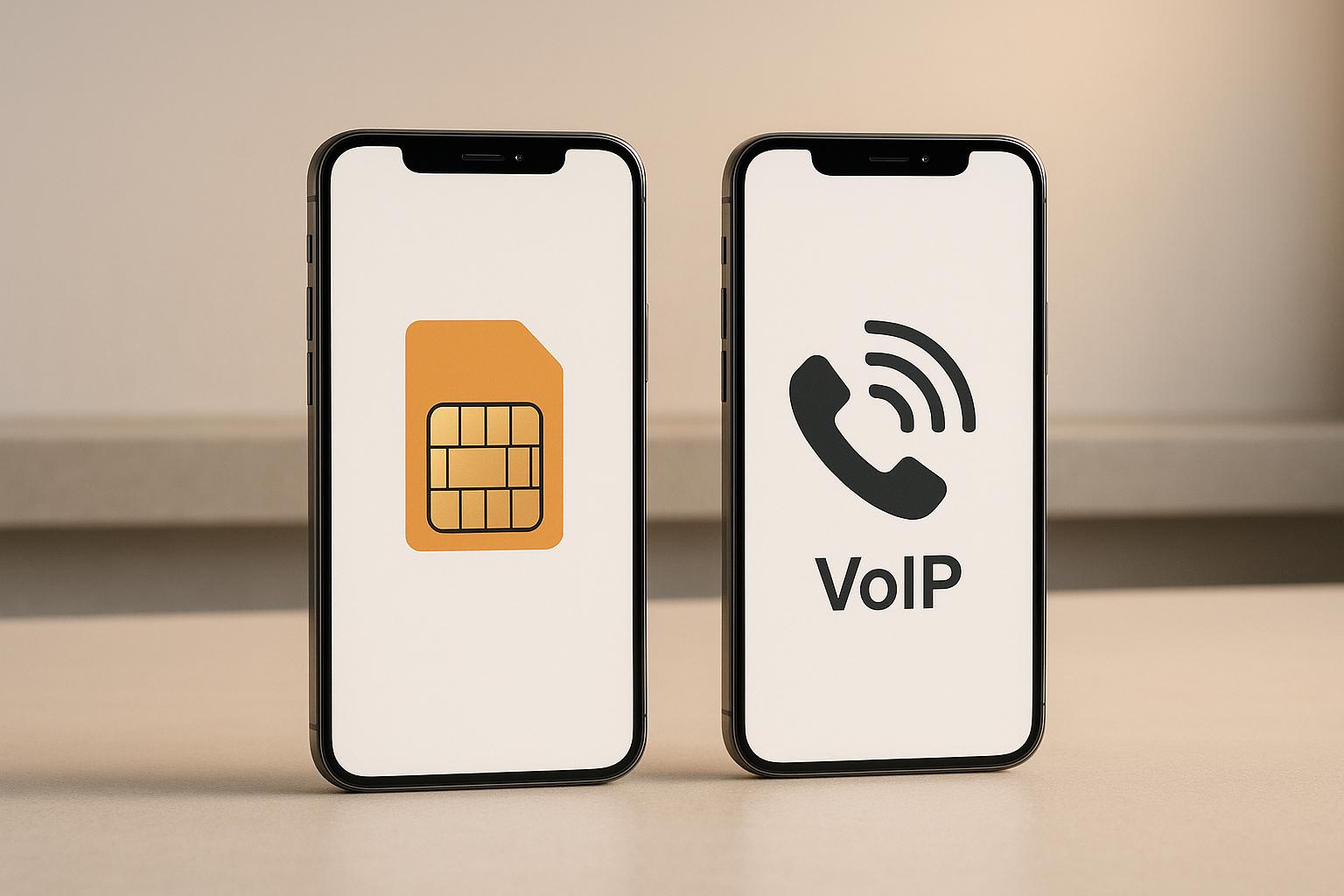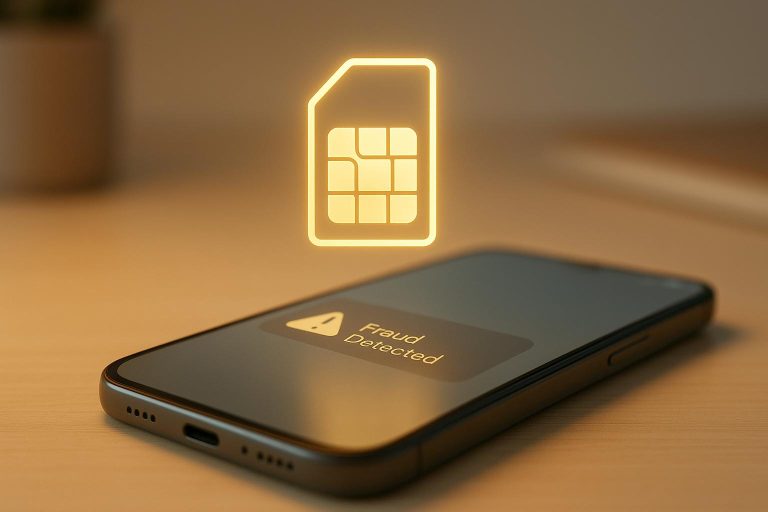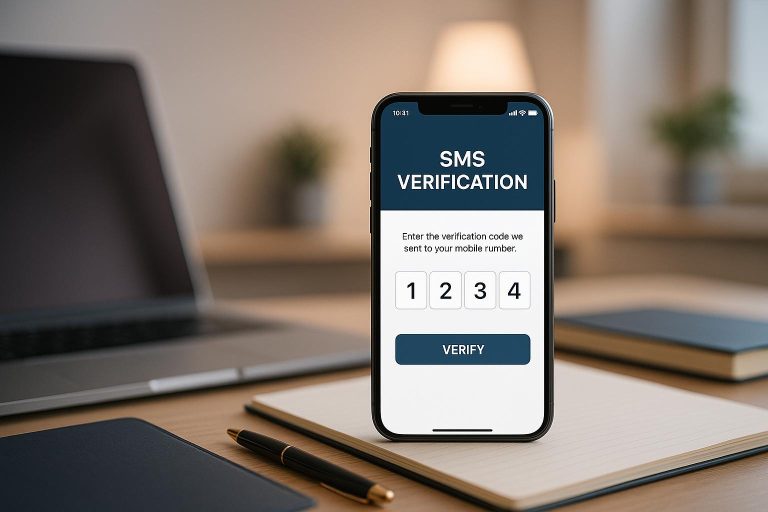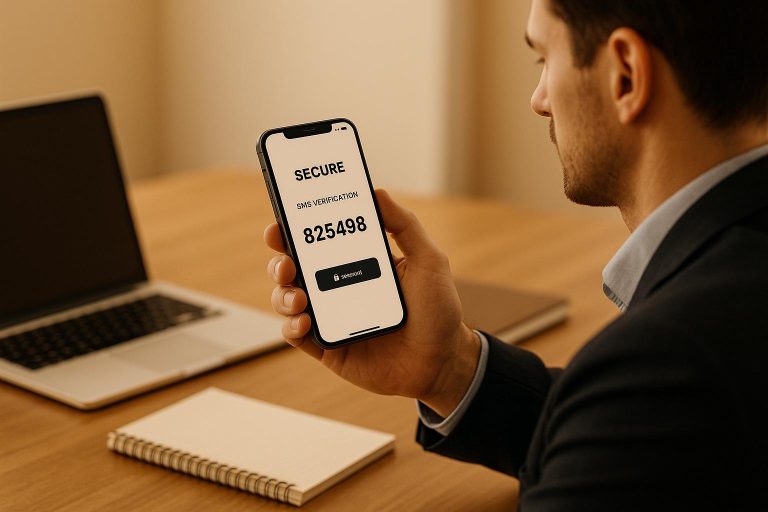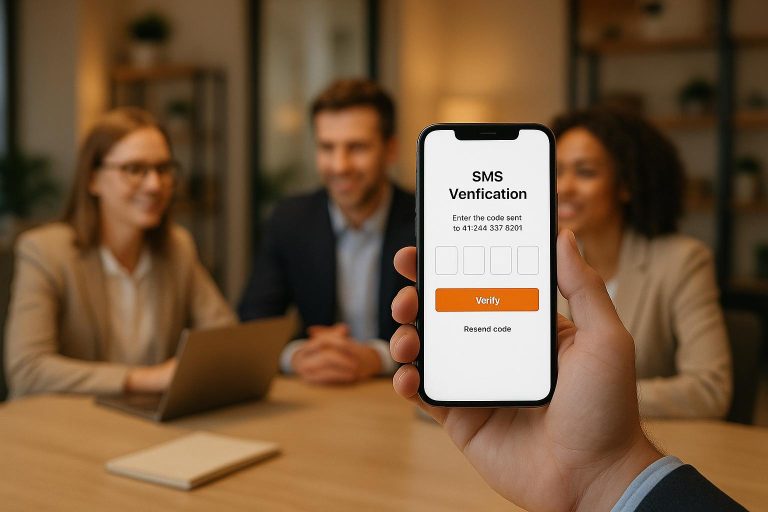VoIP vs SIM-Based Numbers: Which to Choose for Verification
Struggling to choose between VoIP and SIM-based numbers for verification? Here’s the quick answer:
- SIM-based numbers are tied to physical SIM cards and mobile networks. They’re more secure, widely accepted, and ideal for long-term, high-security needs like banking, business, and sensitive platforms.
- VoIP numbers work over the internet, offering flexibility, lower costs, and temporary use for testing or less critical verifications. However, they’re often restricted on major platforms.
Quick Comparison
| Feature | SIM-Based Numbers | VoIP Numbers |
|---|---|---|
| Platform Acceptance | Widely accepted | Often restricted |
| Security | High (carrier-grade, physical link) | Moderate (internet-based) |
| Cost | Predictable ($50/month) | Lower upfront, variable |
| Usage | Long-term, critical verification | Temporary, testing, flexible |
| Network Dependency | Mobile carrier networks | Internet connection |
| SMS Delivery | Reliable | Inconsistent |
Bottom line: Choose SIM-based numbers for reliability and security. Use VoIP numbers if you need a temporary, cost-effective solution.
Get a USA Non-VoIP Number for SMS Verification (Guaranteed OTP)
How VoIP and SIM-Based Numbers Function
Grasping the mechanics behind VoIP and SIM-based systems helps explain their differences in SMS verification. These distinctions set the stage for understanding their security, reliability, and acceptance in various applications.
VoIP Numbers: Internet-Based Communication
VoIP (Voice over Internet Protocol) numbers rely on converting voice and text into data packets transmitted over the internet. Their ability to send and receive SMS messages depends on several factors:
- Messages are routed through multiple internet nodes.
- Server uptime plays a crucial role in functionality.
- Response times can fluctuate based on network conditions.
- Usable from any location with a reliable internet connection.
SIM-Based Numbers: Cellular Network Integration
SIM-based numbers, on the other hand, operate through physical SIM cards tied to mobile networks. These numbers communicate directly with carriers, ensuring more consistent and traceable message delivery:
- Messages are sent through established cellular channels.
- Delivery relies on GSM/CDMA networks, ensuring stability.
- Coverage is determined by the availability of mobile carrier networks.
Key Technical Differences
Here’s a side-by-side look at how these systems differ technically:
| Technical Aspect | SIM-Based Numbers | VoIP Numbers |
|---|---|---|
| Infrastructure | Physical SIM and Cellular Network | Internet Connection Only |
| Network Dependency | Mobile Carrier Coverage | Internet Availability |
| Message Routing | Direct through cellular networks | Through Internet protocols |
| Connection Type | Mobile network-based | Shared internet paths |
| Geographic Limitations | Based on cellular coverage | Dependent on internet access |
| Delivery Method | Via GSM/CDMA networks | IP-based routing |
These technical contrasts play a pivotal role in how each type performs during SMS verification, shaping their reliability and suitability for different scenarios.
Platform Support and Limitations
When it comes to verification, the type of phone number you use can make a big difference. SIM-based numbers are widely accepted across most platforms, while VoIP numbers often encounter restrictions.
Social Media Platform Requirements
Different platforms handle SIM-based and VoIP numbers in varying ways:
| Platform Type | SIM-Based Numbers | VoIP Numbers |
|---|---|---|
| Social Media | Widely accepted | Limited acceptance |
| Messaging Apps | Fully functional | Often restricted |
| Dating Apps | Preferred option | Usually blocked |
| Professional Networks | Generally accepted | Case-by-case basis |
In addition to social platforms, the rules for verification in business and banking settings further highlight the differences between these two types of numbers.
Business and Banking Platform Rules
For business and banking platforms, SIM-based numbers are often the go-to choice due to their reliability and traceability. Here’s how they stack up:
- Banking Apps: Require carrier-issued numbers for added security.
- Payment Services: Typically do not allow VoIP numbers.
- Business Communication: Strong preference for SIM-based numbers to ensure secure interactions.
- Enterprise Solutions: VoIP numbers are often restricted for verification purposes.
These preferences stem from the need for higher security and traceability, which are crucial for financial and professional platforms.
Platform Support Overview
When you look at the big picture, SIM-based numbers consistently outperform VoIP numbers for verification purposes. Here’s why they stand out:
- Stronger Security Compliance: They meet the rigorous verification standards required by many platforms.
- Reliable Access: They offer stable, long-term service availability.
- Global Coverage: They’re supported across a wide range of countries.
- Higher Acceptance Rates: They are more likely to be accepted across a variety of services.
Virtual numbers, available in around 180 countries [1], provide a flexible option for users looking to meet their verification needs while maintaining security and reliability. However, SIM-based numbers remain the preferred choice for most platforms.
sbb-itb-070b8f8
Security and Privacy Comparison
The security and privacy features of VoIP and SIM-based numbers play a crucial role in determining their reliability for verification and safeguarding user data.
SIM-Based Security Features
SIM-based numbers are backed by the robust security of mobile carrier networks. These networks employ several protective measures to ensure secure communication:
| Security Feature | Implementation | Benefit |
|---|---|---|
| Network Authentication | GSM/CDMA protocols | Prevents unauthorized access |
| Physical Security | Hardware-based SIM card | Minimizes risks of cloning |
| Carrier Verification | Monitoring systems | Detects and flags suspicious activity |
| Location Verification | Cell tower triangulation | Enables geographic validation |
These features not only enhance security but also ensure dependable SMS delivery.
VoIP Security Challenges
VoIP numbers, while convenient, come with several security concerns:
- Network Dependency: VoIP relies heavily on a stable internet connection, which can be a potential point of failure.
- Digital Vulnerabilities: Internet-based routing exposes communications to risks like cyberattacks and data breaches.
- Authentication Limitations: Without physical hardware, verifying the authenticity of VoIP numbers becomes more challenging.
- Platform Restrictions: Many platforms restrict the use of VoIP numbers for account verification and SMS-based authentication.
These challenges highlight the additional risks associated with VoIP numbers, especially for sensitive operations.
Regulatory Considerations
Both SIM-based and VoIP numbers must adhere to legal and regulatory standards. However, SIM-based numbers gain an edge due to the direct oversight of mobile carriers. This alignment with carrier protocols ensures a higher level of reliability, making them a preferred choice for critical verification processes.
Cost and Usage Guide
When deciding between SIM-based and VoIP numbers, factors like cost and how you plan to use the service play a big role, beyond just security and platform support.
Price Comparison
Here’s a quick breakdown of the pricing differences between SIM-based numbers (like JoltSMS) and VoIP numbers:
| Feature | SIM-Based Numbers (JoltSMS) | VoIP Numbers |
|---|---|---|
| Initial Setup | Instant activation, no extra fees | Often free |
| Monthly Cost | $50/month (dedicated flat rate) | Varies by provider; often lower upfront |
| Long-term Cost | Predictable flat rate, minimum 30-day rental | Can fluctuate based on usage and duration |
| Additional Fees | None – unlimited incoming SMS codes | May include per-verification charges |
| Contract Length | Minimum 30 days | Flexible (short-term to long-term) |
JoltSMS’s SIM-based numbers provide a steady, predictable pricing structure with no hidden fees. On the other hand, VoIP numbers may seem cheaper at first but can rack up costs due to usage-based fees.
Best Uses for SIM-Based Numbers
SIM-based numbers shine in situations where reliability and broad platform compatibility are non-negotiable:
Business Operations
- Perfect for verifying accounts on financial and banking platforms.
- Essential for managing professional social media accounts.
- Works seamlessly with enterprise-level software and cloud service registrations.
Security-Critical Applications
- Ideal for two-factor authentication on sensitive accounts.
- Necessary for identity verification in regulated industries.
- Trusted for high-stakes verifications requiring carrier-grade dependability.
Long-term Usage
- Great for businesses needing permanent phone numbers.
- Useful for ongoing account management across multiple platforms.
- Helps teams maintain consistent access with dedicated numbers.
Best Uses for VoIP Numbers
VoIP numbers, on the other hand, are better suited for more flexible or temporary needs:
Temporary Needs
- Perfect for short-term projects, testing, or one-off verifications.
Cost-Sensitive Operations
- A good fit for budget-conscious, limited-use scenarios.
Flexible Usage
- Quick and easy to set up.
- Ideal for testing multiple numbers.
- Works well for less critical platform verifications.
Choosing between SIM-based and VoIP numbers often comes down to weighing upfront cost savings against long-term reliability and platform compatibility. For businesses with mission-critical needs, the consistent performance of SIM-based numbers often makes them the smarter choice.
Conclusion: Making Your Choice
Quick Reference Guide
Here’s a snapshot of the key differences between SIM-based and VoIP numbers:
| Factor | SIM-Based Numbers | VoIP Numbers |
|---|---|---|
| Platform Acceptance | Widely accepted by major banking, social media, and business platforms with instant activation | Limited acceptance, often blocked |
| Security Level | High, backed by carrier-grade network security | Moderate, with potential vulnerabilities to interception |
| Privacy Protection | Requires identity confirmation | Offers greater anonymity |
| Cost Structure | Flat rate of $50 or similar predictable pricing | Variable costs depending on usage |
| SMS Delivery | Reliable delivery ensures smooth operations | Delivery can be inconsistent, impacting functionality |
| Long-Term Value | Reliable performance and stable costs | Outcomes can be unpredictable over time |
This table outlines the critical aspects to consider when deciding between the two options.
Recommendations
Here’s how to decide which option suits your needs:
- Opt for SIM-based numbers if:
- You need reliable verification across major platforms.
- Security is a top priority, requiring carrier-grade protection.
- Your team needs consistent access to verification codes.
- Predictable costs are important for your budget.
- Compatibility with key platforms is essential for your operations.
- Choose VoIP numbers if:
- You’re looking for a temporary verification solution.
- Initial cost savings are more important than long-term reliability.
- Platform restrictions are not a concern for your use case.
- Your primary focus is testing or development work.
- Anonymity is a priority for your needs.
While VoIP numbers may seem appealing for their upfront cost savings and flexibility, their limitations in platform acceptance and reliability might pose challenges for long-term use. On the other hand, SIM-based numbers provide a more stable and secure solution, especially for critical operations. Evaluate your specific requirements to make the best choice for your verification needs.
FAQs
What are the key security differences between VoIP and SIM-based numbers for SMS verification?
The key security distinction between these two lies in how they are managed and their dependability. SIM-based numbers are directly linked to physical SIM cards in mobile devices. This connection makes them inherently more secure and less susceptible to unauthorized access. They’re also widely recognized and accepted for verification across various platforms.
In contrast, VoIP numbers are virtual and function over the internet. This setup can leave them more exposed to risks like hacking or spoofing. Because of these vulnerabilities, many platforms may limit or reject their use for verification. For situations involving sensitive data or long-term reliability, SIM-based numbers are typically the safer option.
What are the cost differences between using VoIP and SIM-based numbers for SMS verification over time?
The article delves into the reliability, security, and platform compatibility of VoIP and SIM-based numbers for SMS verification. While it highlights the strengths and weaknesses of each option, it doesn’t explore how their costs compare over the long term. To get a clearer picture of the financial aspects, you might need to conduct further research or seek advice tailored to your particular needs and usage habits.
Why do major platforms prefer SIM-based numbers over VoIP numbers for verification?
Major platforms tend to prefer SIM-based numbers for verification because they’re linked to physical SIM cards, making them more dependable and secure. These numbers are tied directly to mobile carriers and require an actual device to function, which significantly reduces the chances of them being used for fraudulent purposes.
On the other hand, VoIP numbers operate virtually and are easier to obtain in large quantities. This ease of access often raises concerns about potential misuse, such as spam or unauthorized activities. As a result, many platforms place restrictions on VoIP numbers to maintain security. If you’re looking for compatibility with most services, opting for a SIM-based number is generally the safer bet.

